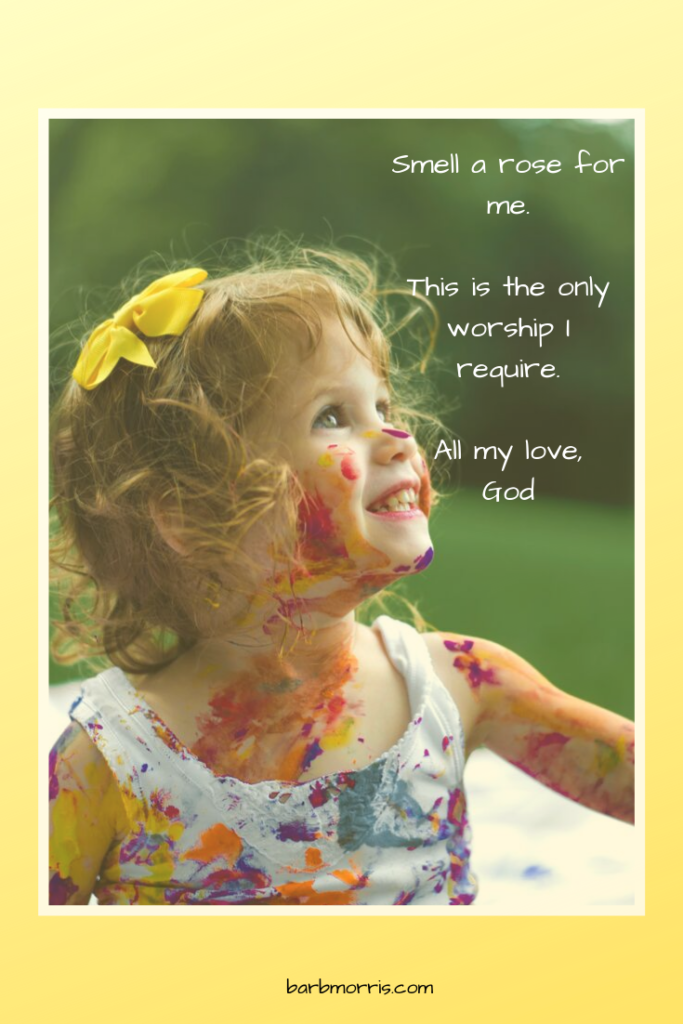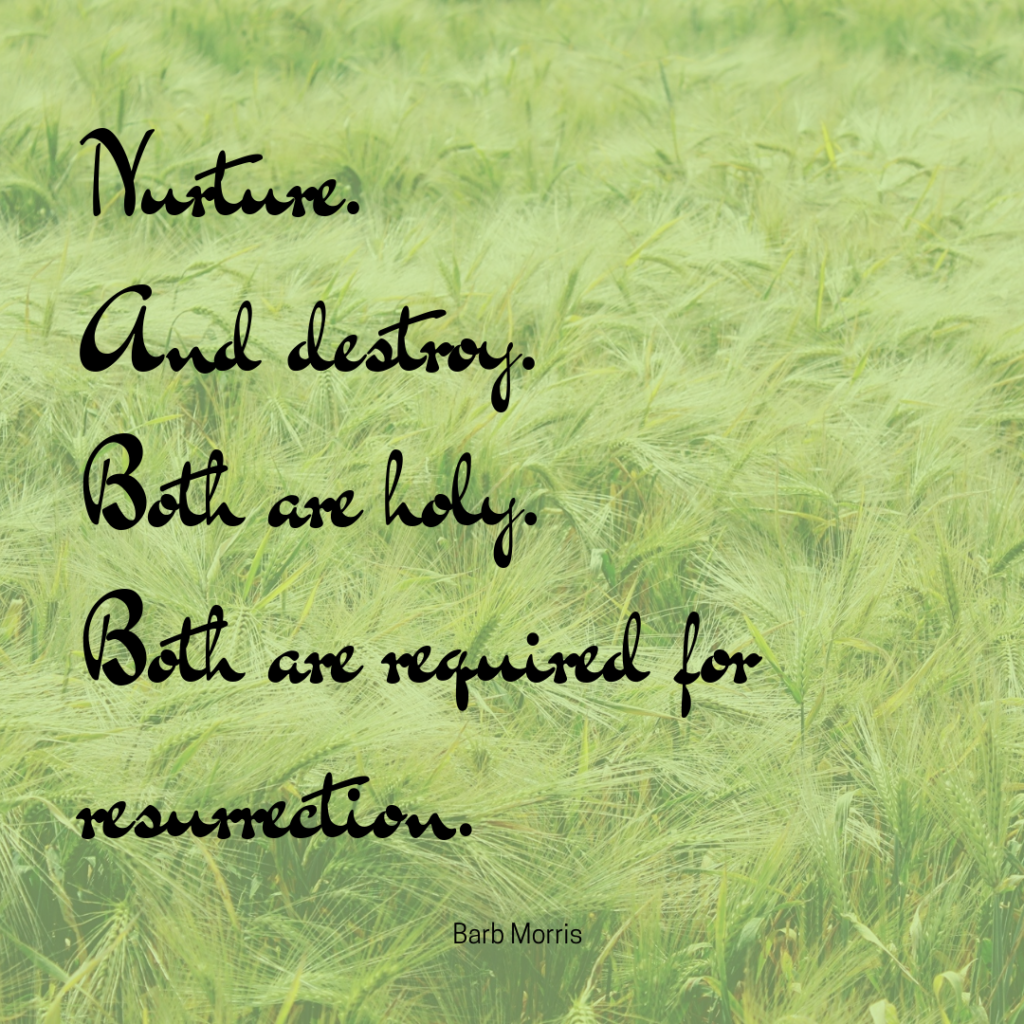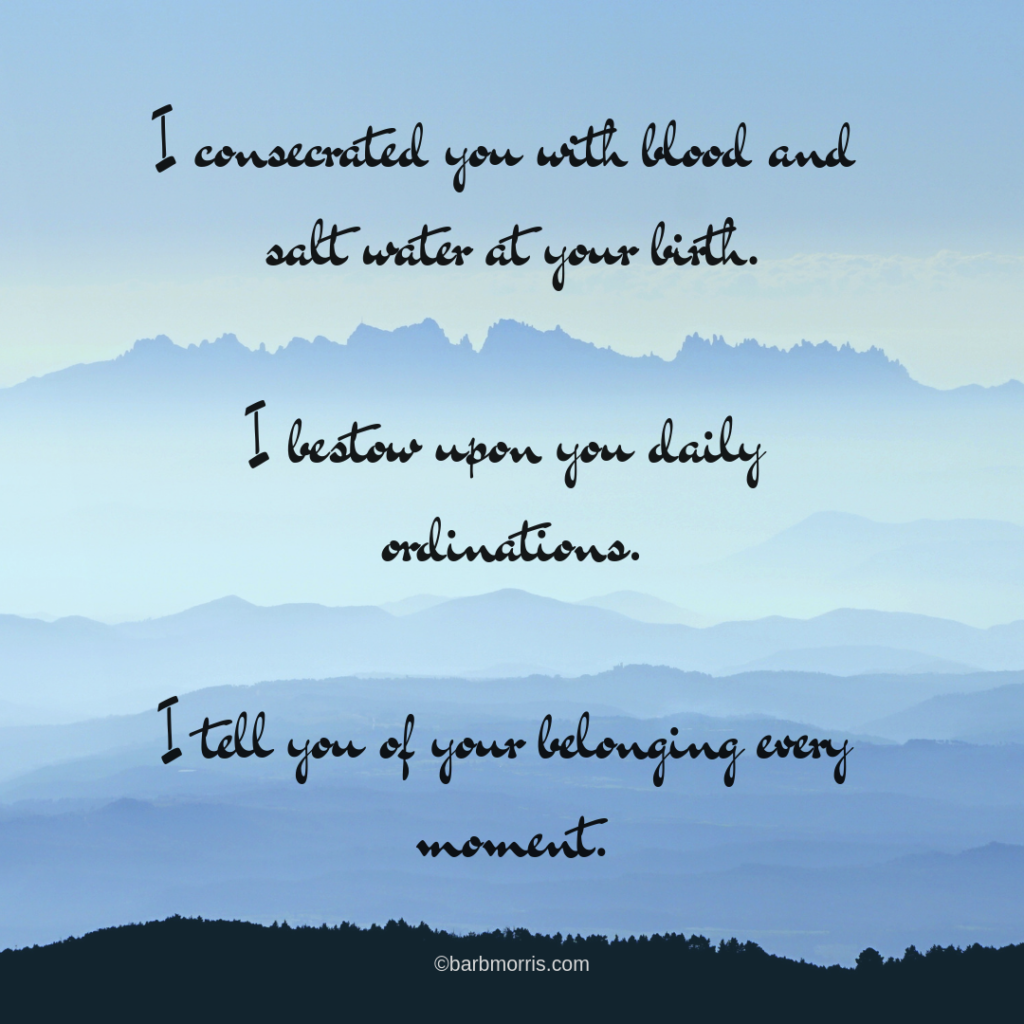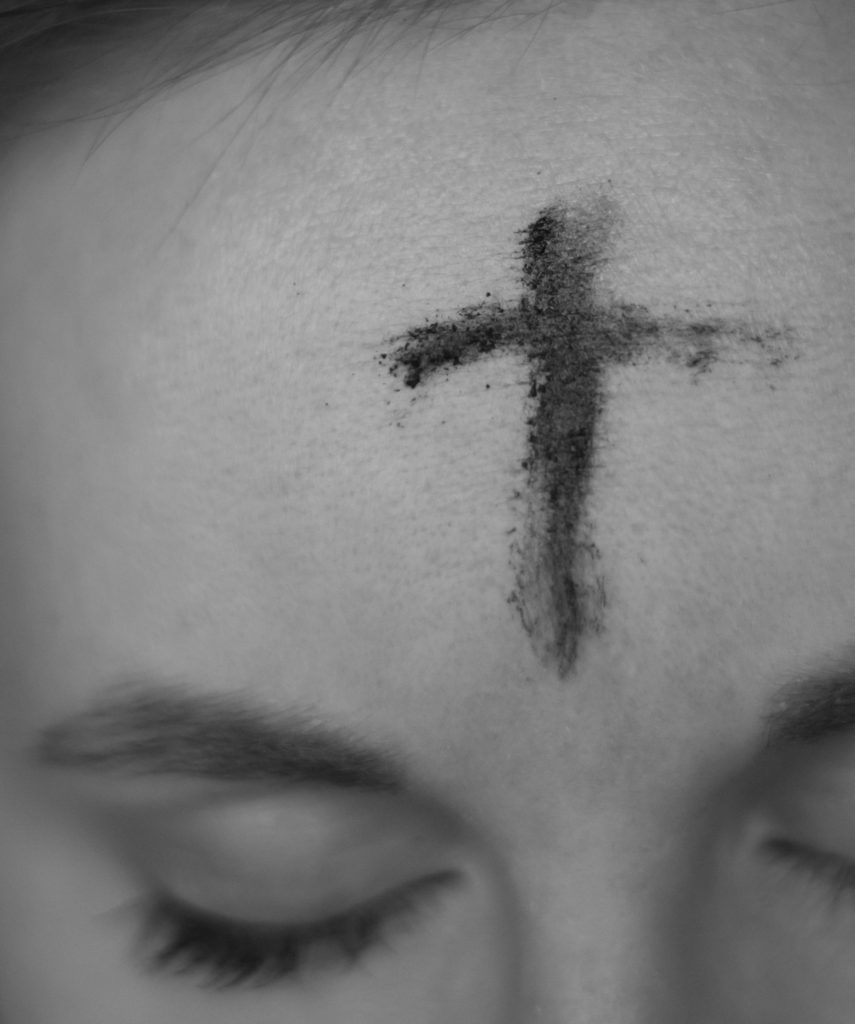
| Dear Daughter, On Ash Wednesday, if you are in church, the minister will invite you to the observance of a “holy Lent” and mark your forehead with the ashes of repentance. Let me be very clear about this: I love you so much. I delight in you. I cherish you. For ever. Here are a few more things I want you to comprehend. Despite what you’ve been taught, “holy” does not mean pure and unearthly. “Sin” does not mean breaking my rules and making me mad. “Penitence” does not mean listing and wallowing in all the ways you’re wrong and bad. “Repentance” does not mean promising to do better to stay out of trouble. Please think about these words a new way, on Ash Wednesday and every other day going forward. What if you only sin when you refuse healing and cling to brokenness? When you use those sharp broken edges to hurt yourself and others? What if holiness is when you choose to be whole, even though you’re terrified? When you embrace and enfold those pieces of yourself you’ve lopped off to fit into others’ molds? What if penitence is when you see yourself clearly, and know, speak, and live from your heart? What if repentance is returning to your true self in all her messy glory? What if, this Lent, instead of focusing on the ways you’re not good enough and the ways you fall short, you commit to your own healing? I was there at the Big Bang, enlivening every particle, atom and molecule. You are made of me, and through me you are connected to everything and everyone. I am everywhere, my love. You live in me and I live in you. This means, my dear, when you let yourself be healed, your healing heals the world. And when you cling to your brokenness, the world stays a little more broken than it needs to be. Your healing is important and necessary. You think your healing is selfish. That’s incorrect. On the contrary, your healing is crucial. I’m using that word deliberately, sweetheart. Your healing is the crux – where you and I come together. This Lent, the only fasts I want from you are these: Fast from distractions that allow you to stay wounded and broken. Fast from believing you’re not good enough. Fast from making yourself small, and nice, and silent. Fast from all judgment, especially of yourself. This Lent, make space for me to flow into you and through you. Befriend your fear, your anger, and your sadness. They are a deep source of nourishment and strength. Let your love go free. Let your joy be unconfined. Sweetheart, healing isn’t complicated, and it’s always here for you. All you have to do is tap into it, like a springtime maple tree or an aquifer of living water. You know this. But it’s so easy to forget, isn’t it? All you have to do is let me clear out the dams and the trash, the resentments and identities and old, too-small skins that keep you stuck and stagnant. Open your heart armor just a little. Let go, child. Breathe and soften. That’s all you have to do. I’ll do the rest. This Ash Wednesday, let those ashes symbolize our unending connection, a connection so easy to forget and so simple to strengthen. When the priest wipes those gritty ashes on your forehead and says, “Remember that you are dust, and to dust you shall return,” celebrate your elemental oneness with this dear, dirty earth, and with me. I am in those ashes, in the dust, in the stars, and in you. I need you, my daughter. You’re the only you I created. Please, let yourself be the creation I made you to be. You don’t need someone outside yourself telling you how to live. Trust yourself. Trust your heart. Trust me. I’ve got you. All my Love, God (A Lenten gift for you: two free PDF printables from this letter.) Photo: Ahna Ziegler on Unsplash |





